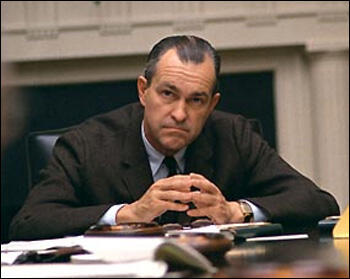On this day on 22nd October
On this day in 1870 Lord Alfred Douglas was born. According to his biographer, G. A. Cevasco: "Athletic and handsome, popular with his classmates, he applied himself more to writing verse than his studies (he did not take a degree), but while at Oxford he contributed to the Oxford Magazine and edited the Spirit Lamp." In June 1891, Douglas was introduced to Oscar Wilde. The two men entered into a sexual relationship. They also worked together and in 1892 Douglas was involved in the French production of Wilde's play, Salomé. They attempted to get it produced in London with Sarah Bernhardt taking the star role but it was banned by the Lord Chamberlain as being blasphemous.
In June 1894 Alfred Douglas received a letter from his father, Marquess of Queensberry, on the subject of his friend, Oscar Wilde: "I now hear on good authority, but this may be false, that his wife is petitioning to divorce him for sodomy and other crimes. Is this true, or do you know of it? If I thought the actual thing was true, and it became public property I should be quite justified in shooting him in sight." Douglas replied with a brief telegram: "What a funny little man you are." This enraged Queensberry who decided to carry out more research into the behaviour of Wilde.
Queensberry arrived at the home of Oscar Wilde at the end of June. Wilde said to Queensberry: "I suppose you have come to apologize for the statement you made about my wife and myself in letters you wrote to your son. I should have the right any day I chose to prosecute you for writing such a letter.... How dare you say such things to me about your son and me?" He replied, "You were both kicked out of the Savoy Hotel at a moment's notice for your disgusting conduct.... You have taken furnished rooms for him in Piccadilly." Wilde told Queensberry: "Somebody has been telling you an absurd set of lies about your son and me. I have not done anything of the kind." Wilde then evicted Queensberry from his home.
On 28th February, 1895, the Marquess of Queensberry left his card at his club, the Albemarle, accusing him of being a "sodomite". Wilde, Douglas and Ross approached solicitor Charles Octavius Humphreys with the intention of suing Queensberry for criminal libel. Humphreys asked Wilde directly whether there was any truth to Queensberry's allegations of homosexual activity between Wilde and Douglas. Wilde claimed he was innocent of the charge and Humphreys applied for a warrant for Queensberry's arrest.
Queensberry entered a plea of justification on 30th March. Owen Dudley Edwards has pointed out: "Having belatedly assembled evidence found for Queensberry by very recent recruits, it declared Wilde to have committed a number of sexual acts with male persons at dates and places named. None was evidence of sodomy, nor was Wilde ever charged with it. Queensberry's trial at the central criminal court, Old Bailey, on 3–5 April before Mr Justice Richard Henn Collins ended in Wilde's attempt to withdraw the prosecution after Queensberry's counsel, Edward Carson QC MP, sustained brilliant repartee from Wilde in the witness-box on questions about immorality in his works and then crushed Wilde with questions on his relations to male youths whose lower-class background was much stressed." Richard Ellmann, the author of Oscar Wilde (1988), has argued that Wilde abandoned the case rather than call Douglas as a witness.
Queensberry was found not guilty and his solicitors sent its evidence to the public prosecutor. Wilde was arrested on 5th April and taken to Holloway Prison. The following day, Alfred Taylor, the owner of a male brothel Wilde had used, was also arrested. Taylor refused to give evidence against Wilde and both men were charged with offences under the Criminal Law Amendment Act (1885).
The trial of Wilde and Taylor began before Justice Arthur Charles on 26th April. Of the ten alleged sexual partners Queensberry's plea had named, five were omitted from the Wilde indictment. The trial under Charles ended in jury disagreement after four hours. The second trial, under Justice Alfred Wills, began on 22nd May. Douglas was not called to give evidence at either trial, but his letters to Wilde were entered into evidence, as was his poem, Two Loves. Called on to explain its concluding line - "I am the love that dares not speak its name" Wilde answered that it meant the "affection of an elder for a younger man".
Both men were found guilty and sentenced to two years' penal servitude with hard labour. The two known persons with whom Wilde was found guilty of gross indecency were male prostitutes, Wood and Parker. Wilde was also found guilty on two counts charging gross indecency with a person unknown on two separate occasions in the Savoy Hotel. These may in fact have related to acts committed by Douglas, who had also been Wood's lover.
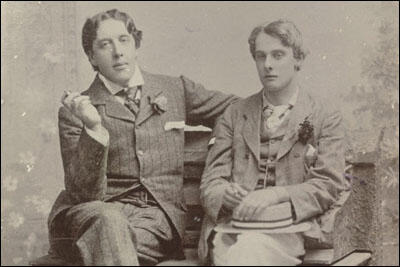
On this day in 1887 John Reed, the American journalist was born. On 9th November 1916, Reed married Louise Bryant. Eleven days later, Reed had one of his kidneys removed at an hospital in Baltimore. His friend, Robert Benchley, who worked for the New York Tribune, wrote to him while he was recovering from the operation: "Allow me to to condole with you on your recent bereavement. we never realize. I suppose, what a wonderful thing a kidney is until it is gone. How true that is of everything in life, after all, isn't it?"
In early 1917 Lincoln Steffens suggested that Reed should go to Russia. He was keen that Louise should accompany him and so he helped her to get accreditation as a foreign correspondent to report the war for the Bell Syndicate. The notation clipped to her application read: "I suppose I will have to issue a passport to this wild woman. She is full of socialistic and ultra-modern ideas, which accounts for her wild hair and open mouth. She is the wife of John Reed, a well-known correspondent."
On 8th November, 1917, Reed spent time with Lenin: "A short, stocky figure, with a big head set down in his shoulders, bald and bulging. Little eyes, a snubbish nose, wide, generous mouth, and heavy chin; clean-shaven now, but already beginning to bristle with the well-known beard of his past and future. Dressed in shabby clothes, his trousers much too long for him. Unimpressive, to be the idol of a mob, loved and revered as perhaps few leaders in history have been. A strange popular leader 'a leader purely by virtue of intellect; colourless, humourless, uncompromising and detached, without picturesque idiosyncrasies - but with the power of explaining profound ideas in simple terms, of analysing a concrete situation. And combined with shrewdness, the greatest intellectual audacity."
Reed's experiences in Russia were recorded in his book, Ten Days That Shook the World, that was published in March 1919. Lenin later claimed it was the best book written about the Russian Revolution. and added that he "unreservedly do I recommend it to the workers of the world". However, others were not so kind. Walter Lippmann argued: "Reed was a great talent, the great descriptive journalist of our era, but as a descriptive, romantic writer, not a political thinker." Charles E. Russell, writing in The New York Times, had grave misgivings about Reed's thesis that: "All revolutions are good; some revolutions are better than others; the Bolshevik revolution was of the best."
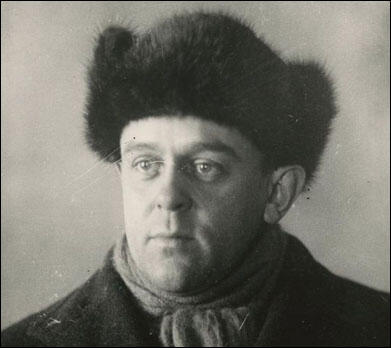
On this day in 1909 the Women's Tax Resistance League is formed. In 1906 Dora Montefiore refused to pay her taxes until women were granted the vote. Outside her home she placed a banner that read: “Women should vote for the laws they obey and the taxes they pay.” As she explained: "I was doing this because the mass of non-qualified women could not demonstrate in the same way, and I was to that extent their spokeswoman. It was the crude fact of women’s political disability that had to be forced on an ignorant and indifferent public, and it was not for any particular Bill or Measure or restriction that I was putting myself to this loss and inconvenience by refusing year after year to pay income tax, until forced to do so by the powers behind the Law."
This resulted in her Hammersmith home being besieged by bailiffs for six weeks. "Towards the end of June, the time was approaching when, according to information brought in from outside the Crown had the power to break open my front door and seize my goods for distraint. I consulted with friends and we agreed that as this was a case of passive resistance, nothing could be done when that crisis came but allow the goods to be distrained without using violence on our part. When, therefore, at the end of those weeks the bailiff carried out his duties, he again moved what he considered sufficient goods to cover the debt and the sale was once again carried out at auction rooms in Hammersmith. A large number of sympathisers were present, but the force of twenty-two police which the Government considered necessary to protect the auctioneer during the proceedings was never required, because again we agreed that it was useless to resist force majeure when it came to technical violence on the part of, the authorities."
Montefiore's campaign was supported by Annie Kenney and Teresa Billington-Greig but did not find favour with the leadership of the Women Social & Political Union (WSPU) and "no effort was ever made to organise the refusal by women to accept laws made for women without their consent. This changed on 22nd October 1909 when the Women's Freedom League (WFL) established the Women's Tax Resistance League (WTRL).
The motto adopted by the Tax Resistance League was "No Vote No Tax". According to Elizabeth Crawford, the author of The Women's Suffrage Movement: A Reference Guide 1866-1928 (2000): "When bailiffs seized goods belonging to women in lieu of tax, the TRL made the ensuing sale the occasion for a public or open-air meeting in order to spread the principles of women's suffrage and to rouse public opinion to the injustice of non-representation meted out on tax-paying women."
Over the next few years over 220 women took part in this campaign. This included Janie Allan, Charlotte Despard, Beatrice Harraden, Teresa Billington-Greig, Edith How-Martyn, Cicely Hamilton, Dora Marsden, Helena Normanton, Anne Cobden Sanderson, Emma Sproson, Louisa Garrett Anderson, Sime Seruya, Margaret Nevinson, Henria Williams, Violet Tillard, Edith Zangwill, Maud Arncliffe Sennett, Lena Ashwell, Minnie Turner, Margory Lees, Dora Montefiore, Evelyn Sharp, Eveline Haverfield, Sophia Duleep Singh and Clemence Housman.
Sylvia Pankhurst, the author of The History of the Women's Suffrage Movement (1931): has argued: "Tax resistance and resistance to enumeration under the Census of that year were mild forms of militancy now in vogue. The Women's Freedom League had hoisted the standard of 'no vote, no tax' in the early days of its formation, and Mrs. Despard and others had suffered a succession of distraints, to the accompaniment of auction sale protest meetings. In November, 1910, the WSPU first adopted the same policy, and the Women's Tax Resistance was formed about this time. In May, 1911, two women were imprisoned for refusal to take out dog licences. A little later, Clemence Housman, sister of the author-artist, Laurence Housman, was committed to Holloway till she should pay the trifling sum of 4s. 6d., but was released in a week's time, having paid nothing."
It was WFL policy of "no taxation without representation" meant that women often went to prison for keeping a dog without a licence. In 1911 Emma Sproson served two terms of imprisonment in Stafford gaol for this offence. Frank Sproson wrote in The Vote: "The humiliating position of the married woman, especially the working woman, is admitted by all Suffragists; but I never realised that she was such an abject slave so clearly as when I stood in the Wolverhampton Police Court, side by side with my wife, charged with aiding and abetting her to keep a dog without a license. The only evidence submitted by the prosecution (the police) that I actually did anything was that I presided at two meetings in support of the "No Vote, No Tax" policy of the Women's Freedom League. That I said anything that was not fair comment on the general policy of militancy there was no evidence to show; if, then, on this point I was liable, then all supporters of militancy are equally so. But I do not believe it was on this evidence that I was convicted. No. The dog was at my house, and cared for by my children during my wife's absence. In the eyes of the law, I was lord and master, so that my offence, therefore, was not that I did anything, but rather that I did not do anything."
Beatrice Harraden appeared in court in April, 1913, for not paying her taxes: "The least any woman can do is to refuse to pay taxes, especially the tax on actually earned income. This is certainly the most logical phase of the fight for suffrage. It is a culmination of the Government's injustice and stupidity to ask that we pay an income tax on income earned by brains, when they are refusing to consider us eligible to vote. The league was formed three years ago with the slogan: 'No vote, no tax'. It is non-partisan an association of constitutional and militant suffragists, recruited from various suffrage societies for the purpose of resisting taxes."
Evelyn Sharp was one of the last to suffer at the hands of the authorities: "So I came home one day, early in 1917, to find a bailiff sitting in my flat. The bailiff was a real gentleman. He obviously hated his job, and since he must have retired long ago I shall do him no harm here by saying that he let me discover this by asking me not to let them know in Carey Street that he was at all friendly with me. It was not easy for either of us to remain enemies, boxed up as we were in the same room all day - I had let my largest room to a war worker - and very soon he was telling me about his son in the Army and I was converting him to votes for women."
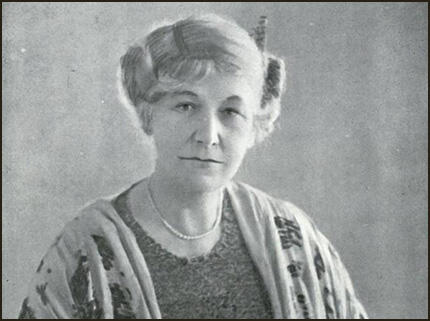
On this day in 1913, Robert Capa was born in Hungary. In 1939 Capa emigrated to the United States and in 1942 he was recruited by Collier's Weekly as a photojournalist. He went to Britain and covered the Home Front before moving to North Africa. The following year Capa joined Life Magazine and accompanied Allied troops to Sicily in July 1943.
Capa also recorded dramatic photographs of the D-Day landing. In all, Capa took 108 pictures in the first couple of hours of the invasion of France. Unfortunately, a member of the staff of Life Magazine made a mistake in the darkroom and only eleven were publishable.
Subsequently he reported on the early days of the state of Israel and then the attempt by France to hold onto Vietnam. Robert Capa was killed by a land mine in Vietnam in 1954.
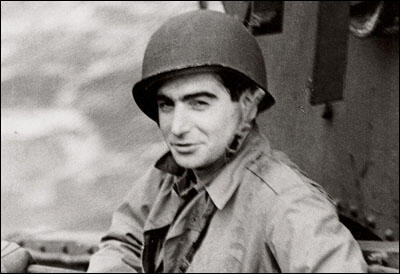
On this day in 1920, Timothy Leary, American psychologist was born. Richard Nixon described Leary as the "most dangerous man in America" and ordered G. Gordon Liddy to destroy him. In 1974 he was illegally kidnapped by Interpol agents in Kabul and transported to the United States. (At the time Afghanistan had no extradition treaty with the United States.) Leary was eventually released from prison in April, 1976.
Books by Leary include The Interpersonal Diagnosis of Personality (1957), The Psychedelic Experience (1964), The Politics of Ecstasy (1965), Start Your Own Religion (1967), High Priest (1968), Confessions of a Hope Fiend (1973), Flashbacks (1983), Info-Psychology (1987), Change Your Brain (1988), Game of Life (1989), Intelligence Agents (1996) and Turn On, Tune In and Drop Out (1999).
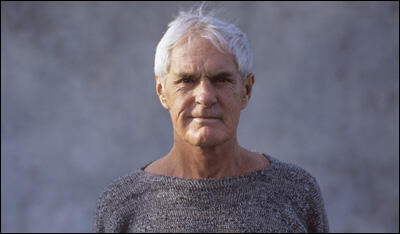
On this day in 1923 Bert Trautmann, was born in Germany. A member of the Hitler Youth and the German Army he was captured by Allied forces in 1944. Trautmann, the 22-year-old "veteran" was sent to England as a prisoner of war. Members of the German armed forces were interrogated before being classified into three categories: White for anti-Nazis, Grey for unsure and Black for convinced Nazis. Around 10 per cent, including Trautmann, were judged to be a convinced Nazi.
After he was released Trautmann married a local woman. The manager of Manchester City, Jock Thomson, decided to sign Trautmann to replace Frank Swift. Manchester had a large Jewish community and they began a campaign to stop him playing for the club. In October 1949, 25,000 fans demonstrated outside the Maine Road Stadium, shouting and waving placards emblazoned with swastikas, "Nazi" and "War Criminal" threatening to boycott the club unless they got rid of the German.
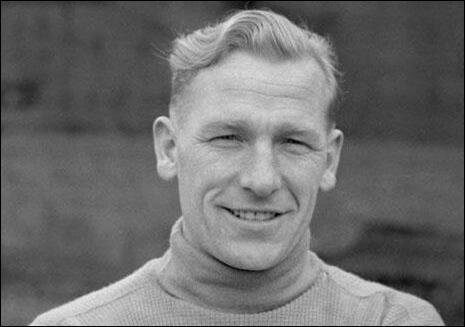
On this day in 1943 in the second firestorm raid on Germany, the RAF conducts an air raid on the town of Kassel, killing 10,000 and rendering 150,000 homeless. In 1941 Charles Portal of the British Air Staff advocated that entire cities and towns should be bombed. Portal claimed that this would quickly bring about the collapse of civilian morale in Germany. Air Marshall Arthur Harris agreed and when he became head of RAF Bomber Command in February 1942, he introduced a policy of area bombing (known in Germany as terror bombing) where entire cities and towns were targeted.
One tactic used by the Royal Air Force and the United States Army Air Force was the creation of firestorms. This was achieved by dropping incendiary bombs, filled with highly combustible chemicals such as magnesium, phosphorus or petroleum jelly (napalm), in clusters over a specific target. After the area caught fire, the air above the bombed area, become extremely hot and rose rapidly. Cold air then rushed in at ground level from the outside and people were sucked into the fire. The most notable examples of this tactic being used was in Hamburg (August, 1943), Dresden (February, 1945) and Tokyo (March 1945).
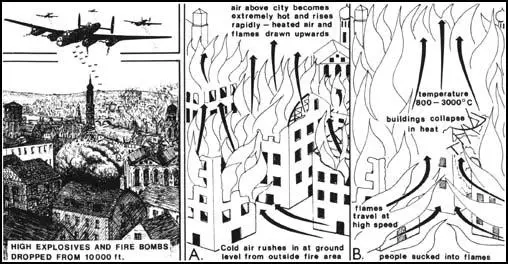
On this day in 1956 working-class feminist Hannah Mitchell died.
Hannah Mitchell, the daughter of John Webster, a small farmer in Derbyshire, was born on 11th February 1871. Hannah received only two weeks of formal schooling and was kept busy on the farm and with domestic duties. Her three brothers did not have to work at home and she grew up with a strong awareness of gender inequalities.
At the age of fourteen Hannah had a vigorous row with her mother over the work she was expected to do. After being badly beaten with a stick, Hannah ran away from home. Hannah found work as a dressmaker in Bolton. Although she was only earning eight shillings a week, she managed to subscribe to a small library and over the next few years taught herself to read and write.
While working in Bolton, Hannah met Gibbon Mitchell, a tailor's cutter. Gibbon was the son of a widow with eight children and had worked since the age of ten. Gibbon was a socialist and the couple began attending meetings at the Bolton branch of the Independent Labour Party. Hannah and Gibbon became active in the trade union movement in Bolton during this period and avid readers The Clarion a journal produced by Robert Blatchford.
Hannah married Mitchell in 1895. Hannah insisted that they should share domestic duties. Although he agreed on principal with this, he found it difficult to live up to Hannah's expectations of how a husband should behave. She later pointed out in her autobiography that she gradually realised that "socialists are not necessarily feminists." Hannah also objected to the way her husband "handed over the wages and left all the worrying to me." She wrote that even "the most sympathetic man can never be made to understand that meals do not come up through the tablecloth, but have to be planned, bought and cooked."
In 1904 Hannah joined the local branch of Women's Social and Political Union (WSPU). Gibbon Mitchell supported her involvement and because of local hostility to the suffragettes was employed as one of the bodyguards at public meetings. Hannah's involvement in the movement grew and in 1905 she became a full-time worker for the WSPU.
Like many of the leading figures in the WSPU, Mitchell objected to the way that Emmeline Pankhurst and Christabel Pankhurst made important decisions without consulting fellow members. In 1907 Charlotte Despard persuaded her to join Women's Freedom League.
Mitchell was a pacifist and refused to become involved the WSPU army recruiting campaign in 1914. She joined the Independent Labour Party and other organised that opposed the war including the No-Conscription Fellowship and the Women's Peace Council.
In 1924 Hannah Mitchell was elected to the Manchester City Council. She remained an important political figure in Manchester until she retired. In her seventies Hannah wrote her autobiography The Hard Way Up. Unfortunately, the book was not published until after her death on 22nd October 1956.
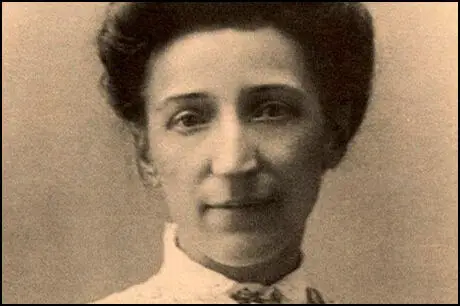
On this day in 2002 Richard Helms died. After the bombing of Pearl Harbor Helms joined the United States Navy. In August, 1943, he was transferred to the Office of Strategic Services (OSS) that had made established by William Donovan. The OSS had responsibility for collecting and analyzing information about countries at war with the United States. It also helped to organize guerrilla fighting, sabotage and espionage.
After the surrender of Germany in 1945, Helms helped interview suspected Nazi war criminals. Helms remained in the OSS and in 1946 was put in charge of intelligence and counter-intelligence activities in Germany, Austria and Switzerland. The following year Helms joined the recently formed Central Intelligence Agency (CIA).
Helms has been accused of being involved in the assassination of John F. Kennedy. In 1966 President Lyndon B. Johnson appointed Helms as Director General of the CIA. During the Watergate Scandal President Richard Nixon became concerned about the activities of the CIA. Three of those involved in the burglary, E. Howard Hunt, Eugenio Martinez and James W. McCord had close links with the CIA. Nixon and his aides attempted to force Richard Helms, and his deputy, Vernon Walters, to pay hush-money to Hunt, who was attempting to blackmail the government. Although it seemed Walters was willing to do this, Helms refused. In February, 1973, Nixon sacked Helms. His deputy, Thomas H. Karamessines, resigned in protest. The following month Helms became U.S. Ambassador to Iran.
